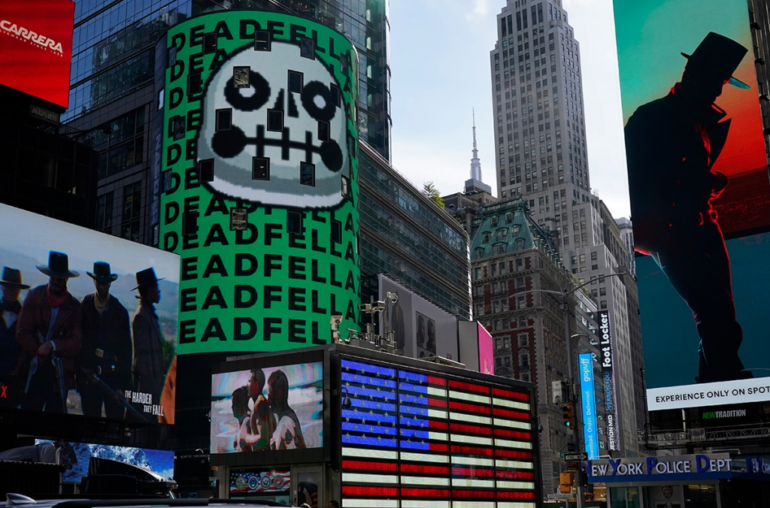By Gideon Kimbrell
As the creator of an app that promotes exclusive and exciting nightlife and live events around the globe, let me tell you: While many nuances can’t be replicated via technology at this point, emerging technologies such as artificial intelligence (AI) and NFTs are poised to offer more personalized experiences and a more curated approach to interactions at events.
Virtual live events represent a novel method of operating trade shows, conferences and various entertainment events. This area shows particular promise if executed properly. Virtual live events can allow people to “attend” events from around the world, significantly reduce the events’ carbon footprints (both in terms of production and attendee travel), decrease costs for stakeholders at different points of their investments and allow for a broader range of content.
And if you’re like me, sometimes when you’ve attended in-person conferences or events, you’ve felt overwhelmed with the choices and unsure of the best way to set your agenda — which speakers to listen to, which exhibits to explore and where or with whom to network. Virtual events can solve this problem by leveraging AI to maximize your engagement to best align with your interests and goals.
blogherads
.defineSlot( ‘medrec’, ‘gpt-dsk-tab-article-inbody1-uid0’ )
.setTargeting( ‘pos’, [“mid-article”,”mid”,”in-article1″,”mid-article1″,”inbody”,”inbody1″] )
.setSubAdUnitPath(“culture-council/article/inbody1”)
.addSize([[300,250],[620,350],[2,2],[3,3],[2,4],[4,2],[640,250]])
;
});
For example, conversational or assistant AI could take your interests into account, check your existing schedule or calendar, present you with optimized choices, and later recap you on anything you may still have missed, even summarizing key lectures. So though one may “lose” something from not attending in person, they may also gain something in terms of efficiency.
Other ways AI can be leveraged for events include matchmaking, real-time translation into all known languages and personalized video recaps focusing on the highlights each individual guest may care about. Matchmaking is particularly interesting, as AI is uniquely well-suited for looking at myriad data points about each guest — from social media profiles to questionnaires and other known histories — and effectively matching them with others at the event who share similar goals, personalities or backgrounds.
The ultimate goal is to create a more immersive and fulfilling experience for attendees. When any event is made more personalized for the guest, it becomes more immersive. Nothing feels more detaching than not knowing what is going on at a conference or what you should do next.
The Rolling Stone Culture Council is an invitation-only community for Influencers, Innovators and Creatives. Do I qualify?
Emerging NFT technology is already being applied to live events. Tao Group Hospitality, a global hospitality company, broke into NFT ticketing recently “with a three-night NFT-ticketing takeover at Marquee in New York City”during NFT.NYC 2022. According to NFT Culture, the company also released “an exclusive NFT that only attendees of its annual invite-only Swedish Midsummer Party could claim” in partnership with Yellowheart. Other examples of event organizers using NFTs recently include Coachella’s recent foray into NFTs, offering a mix of physical and digital assets.
Adoption stands with NFTs in live events varies. According to a piece in NFT Now, “…most show-lovers still don’t have an NFT wallet, pushing NFT tickets out of the equation for many organizers.” For me, the main takeaway is that NFT adoption by event organizers is at least partly driven by the adoption of NFT wallets/crypto wallets by event-goers.
blogherads
.defineSlot( ‘medrec’, ‘gpt-dsk-tab-article-inbody2-uid1’ )
.setTargeting( ‘pos’, [“mid-article2″,”mid”,”in-article2″,”mid-article”,”inbody”,”inbody2″] )
.setSubAdUnitPath(“culture-council/article/inbody2”)
.addSize([[300,250],[300,251],[620,350],[2,4],[4,2],[3,3],[2,2]])
.setLazyLoadMultiplier(2)
;
});
However, that is rapidly changing. There actually is no way to know how many NFT wallets exist, given the decentralized nature of the blockchain. For example, I could right now create 1,000 NFT wallets and nobody would know about it. However, looking at other macro trends we can estimate NFT or NFT wallet growth. 2022 is still on track to outpace 2021 for inflows to NFT marketplaces, indicating overall strong growth in this sector.
I believe NFT ticketing is a major indicator of where both the live events and NFT industries are going. NFT tickets could solve nearly all the issues people have with traditional tickets (e.g., scalpers, fraudulent tickets, etc.). They’re a huge step away from the whole JPEG idea, and they provide actual utility.
That’s not to say there aren’t challenges. Data security measures, potential necessary equipment and effective approaches to curation are concerns accompanying the potential of incorporating these emerging technologies at live events. All of these opportunities require collecting and massaging all new sets of data from all stakeholders, not just event guests. And whenever significant additional data is collected, it presents both privacy and cybersecurity concerns. Zoom, for example, had a major security hole that could allow anyone to take control of a computer with Zoom on it — even when Zoom wasn’t open — spurring Apple to rush its own hot-fix even before Zoom could. Such a security issue at a major virtual event could be disastrous.
Business owners need to fully understand the sensitivities of their event participants — their technical abilities and technical phobias, especially — and take adequate measures to limit access to and protect data, regardless of what consent users have provided. The privacy and security concerns of any two events (and their guests) are not the same. For example, an event geared toward young tech people will be much easier to deploy things such as facial recognition and matchmaking, but trying that tech with any demographic more skeptical of it could quickly sink the event. A best practice would be to try each of these technical advances one by one unless absolutely certain of widespread and favorable guest adoption.
blogherads
.defineSlot( ‘medrec’, ‘gpt-dsk-tab-inbodyX-uid2’ )
.setTargeting( ‘pos’, [“mid”,”mid-articleX”,”in-articleX”,”mid-article”,”inbody”,”inbodyX”] )
.setSubAdUnitPath(“culture-council/article/inbodyX”)
.addSize([[300,250],[300,251],[3,3],[620,350],[2,2]])
.setLazyLoadMultiplier(2)
;
});
In the end, events should be a part of every company’s culture — even if they are not in the events, entertainment or hospitality industries. Every business leader can learn the best way to execute events such that attendees will leave lasting impressions and deeper relationships.
We want to hear it. Send us a tip using our anonymous form.
Copyright © 2022 Penske Business Media, LLC. All Rights reserved.



